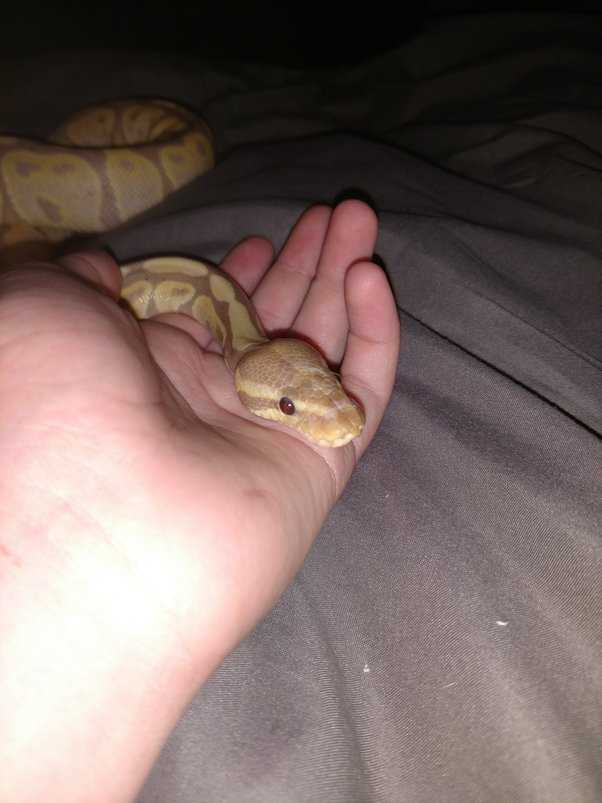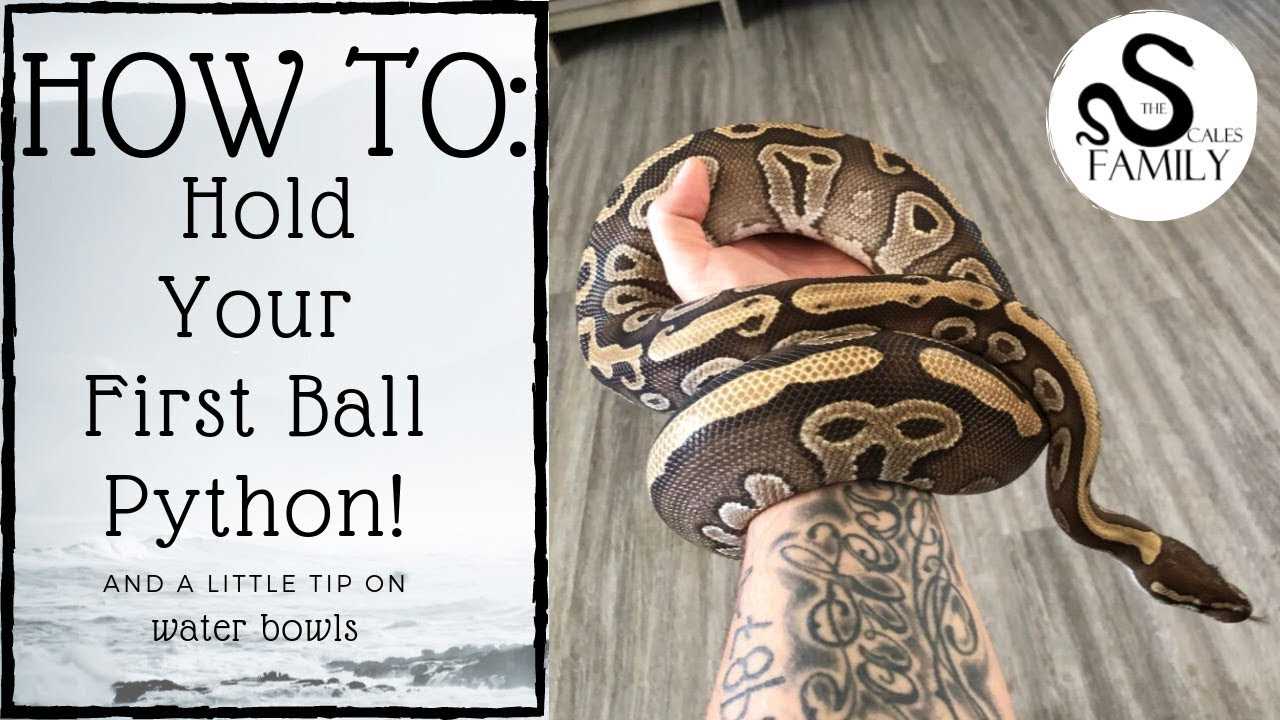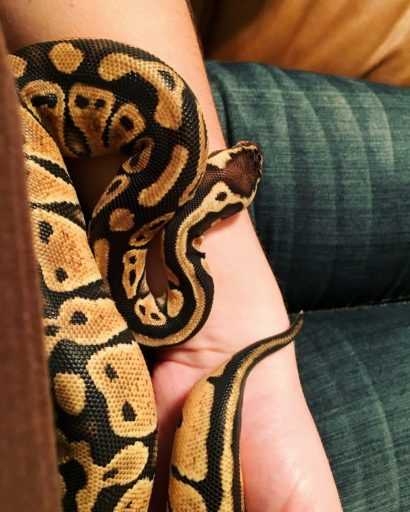Being held provides ball pythons with an opportunity to explore their surroundings, experience new sensations, and bond with their owners. When handled correctly and gently, ball pythons can become comfortable and even relaxed while being held.
Do Ball Pythons Enjoy Being Held?
Another factor that can affect a ball python’s preference for being held is their individual personality and temperament. Just like humans, snakes have their own unique personalities and preferences. Some ball pythons may enjoy the sensation of being gently held and may even seek out human interaction, while others may prefer to be left alone and may become stressed or defensive when handled. It’s essential to observe and understand your ball python’s individual preferences and comfort levels.
Creating a comfortable environment for handling is crucial in making ball pythons enjoy being held. This includes providing a secure and appropriate enclosure with suitable hiding spots and temperature gradients. Snakes are ectothermic, which means they rely on external heat sources to regulate their body temperature. Ensuring that the ambient temperature and humidity levels are suitable for your ball python can help them feel more comfortable and at ease during handling.
Factors Affecting Ball Pythons’ Preference for Being Held:

4. Environmental Factors: The snake’s environment can also play a role in their preference for being held. Ball pythons require a proper temperature and humidity level to thrive. If they are too cold or too hot, they may not feel comfortable being handled.
5. Health and Well-being: A healthy ball python is more likely to enjoy being handled. Regular veterinary check-ups, a balanced diet, and proper care are essential in maintaining their physical and mental well-being.
1. Body Language:
Common signs that a ball python is relaxed and content include a straight posture with their body loose and muscles relaxed, smooth and slow movement, and a lack of defensive behaviors such as hissing or striking. On the other hand, signs of discomfort or stress may include tightly coiled body, rapid movements, hissing, striking, or hiding.
2. Bonding and Trust:
Ball pythons, like any other pet, can develop a bond and trust with their owners over time. This can be achieved through regular, gentle handling and positive reinforcement. By handling your ball python regularly and providing them with a calm and secure environment, you can help build a positive association with being held.
3. Gradual Acclimation:
When introducing a new ball python to handling, it is recommended to start with short sessions and gradually increase the duration over time. This allows the snake to become familiar with being held and reduces the risk of overwhelming or stressing them out.
It is also important to handle your ball python with clean hands and avoid any sudden movements or loud noises that can startle them. Providing a comfortable and secure environment during handling, such as using a snake hook or holding them close to your body, can also help them feel more secure.
4. Respect Personal Space:
Allowing your ball python to initiate contact by slowly approaching your hand or arm and gently guiding them onto your hand can create a more positive and comfortable experience for both you and your snake.
Table:
| DO | DON’T |
|---|---|
| Handle your ball python regularly and gently | Force or restrain your ball python |
| Pay attention to their body language and reactions | Ignore signs of distress or discomfort |
| Start with short handling sessions and gradually increase | Handle your ball python when they are in shed or stressed |
| Provide a calm and secure environment during handling | Handle your ball python after feeding |
| Respect their personal space and boundaries | Handle your ball python in a loud or chaotic environment |
Tips for Making Ball Pythons Comfortable with Handling:
1. Start with short handling sessions:
2. Approach them calmly and confidently:
When you want to handle your ball python, approach them calmly and confidently. Sudden movements or loud noises can startle them and make them feel threatened. By remaining calm and confident, you create a safe and secure environment for them.
3. Support their body:
When you pick up a ball python, make sure to support their body properly. They feel more secure when they have something to wrap around, so use both hands to gently hold them, supporting their body and preventing any sudden movements that may cause them to feel insecure.
4. Respect their boundaries:
5. Provide a comfortable environment:
6. Be patient:
By following these tips, you can help your ball python feel more relaxed and comfortable when being held, creating a positive experience for both you and your snake. Remember to always prioritize your snake’s well-being and never force them into a situation they are not comfortable with.
Signs That Your Ball Python May Not Enjoy Being Held
1. Defensive Posture

If your ball python adopts a defensive posture during handling, it may be a clear sign that it does not enjoy being held. Some defensive postures include coiling tightly, flattening its body, and hissing. These behaviors indicate that the snake feels threatened and may bite if provoked further.
2. Tries to Escape
If your ball python constantly tries to escape when you handle it, this could be an indication that it does not like being held. The snake may slither away, jerk its body, or attempt to climb or hide. These actions demonstrate that the snake is not comfortable in its current situation and would rather be in a different environment.
3. Frequent Hiding
If your ball python frequently hides or burrows itself when you handle it, it may not enjoy being held. Hiding is a natural behavior for ball pythons when they feel stressed or threatened. If your snake consistently seeks refuge during handling, it may be a sign that it is not comfortable with the interaction.
4. Lack of Appetite
Another sign that your ball python may not enjoy being held is a lack of appetite. Stress can cause snakes to lose their appetite, and if your snake consistently refuses to eat after handling sessions, it could indicate that it finds the experience distressing.
5. Defensive Strikes or Biting

- Monitor your ball python’s body language during handling to ensure it is comfortable.
- Provide hiding spots and a secure enclosure to create a safe and stress-free environment for your snake.
- Do not force handling if your ball python consistently shows signs of discomfort or stress.
Remember, every ball python is unique, and while some may enjoy being held, others may prefer to be left alone. It is essential to understand and respect your snake’s preferences and ensure its well-being and happiness.

I’m Lena Adams—a product of an unconventional upbringing in the African wilderness. My father, a daring explorer of African wildlife, sparked my fascination with reptiles, a passion that intertwined with the tragic loss of my mother during an expedition, leaving an indelible mark on my life. Driven to understand the creatures that captivated my parents, I embarked on my journey, sharing insights about reptiles, frogs, and lizards on my website. Through my explorations and conservation efforts, I honour my family’s legacy while seeking connections—to the creatures, nature, and the mother whose presence I yearn to understand.
